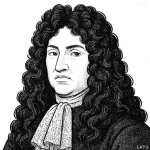“The sovereign is called a tyrant who knows no laws but his caprice.”

- November 21, 1694 – May 30, 1778
- Born in France
- Philosopher, man of letters, historian
table of contents
Quote
“The sovereign is called a tyrant who knows no laws but his caprice.”
Explanation
This quote reflects a sharp critique of absolute authority, where rulers act solely on personal whims without regard to laws or justice. Voltaire’s era was marked by widespread absolutism in Europe, where kings and sovereigns held unchecked power. The Enlightenment, a period in which Voltaire was a prominent figure, sought to challenge this idea by promoting reason, individual rights, and the rule of law over arbitrary rule. His writings often opposed despotism, highlighting the dangers of unchecked power and its potential to lead to tyranny.
In modern contexts, this observation remains highly relevant in discussions of governance and leadership. Leaders who ignore the principles of democracy or the rule of law often risk being labeled tyrants, regardless of their intentions. For instance, authoritarian regimes that suppress dissent or manipulate laws to maintain power echo the issues Voltaire raised centuries ago. His words remind us that governance requires accountability to higher principles rather than personal desires.
A specific example of the quote’s application can be seen in the widespread condemnation of autocratic rulers today. Movements advocating for democratic reforms or protesting abuses of power often cite principles aligned with Voltaire’s ideas. The enduring legacy of such Enlightenment critiques underscores the importance of law and justice as foundations for legitimate authority.
Would you like to share your impressions or related stories about this quote in the comments section?



